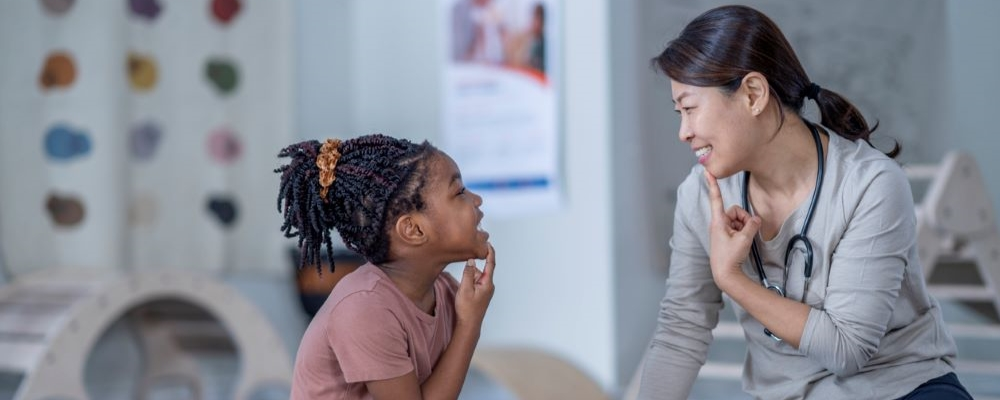
Better Hearing and Speech Month
Better Hearing and Speech Month (BHSM) is observed each May. Founded by the American Speech-Language-Hearing Association in 1927, this month serves as an opportunity to raise awareness about communication disorders and hearing health.
Why is BHSM Important?
One of the goals of BHSM is to increase awareness of the types of communication disorders and the different methods that can be used for communication. Heidi Woodworth, Cameron Hospital’s new full-time speech and language pathologist, encourages everyone to learn about speech disorders and how they can affect communication, so they can support and advocate for peers with communication disorders.
“Communication drives everything we do,” Heidi said. “People with communication disorders have different ways of interacting. They might need longer processing time, use shorter sentences, or use a computer-based device.”
Though these disorders come in many forms, they generally reach beyond physical troubles with producing speech and can affect cognition, voice, swallowing, breath support, language, pragmatics and memory.
When approaching those with hearing and speech impairments, it is important to be patient and welcoming of their chosen mode of communication. Allowing time for comfortable interaction ultimately benefits everyone.
How to Participate in BHSM
BHSM highlights the need for regular hearing screenings for children and adults to ensure early detection of problems. The earlier a communication disorder is diagnosed, the sooner treatment and therapy can begin to help the affected person navigate daily life.
If you or a family member have concerns about speech, communication or swallowing, speak with your physician about the right steps to take. Typically, your physician will take you through the appropriate tests before referring you to a speech specialist like Heidi.
“Being a speech and language pathologist gives me the opportunity to help others improve their relationships and interactions by showing them how to better communicate their wants and needs,” she said.
Even if you are not touched by a communication disorder, you can adopt good habits to preserve your senses. To protect hearing, experts suggest lowering headphone volume, wearing protective hearing gear like earplugs and planting noise buffers like trees.
BHSM encourages everyone to engage in open conversations about speech and hearing problems. Sharing informational content on social media can be a good place to start. For those who have experienced a communication disorder, sharing your story will not only be cathartic, but can also influence others to seek help without stigma or hesitation.
Learn more about Heidi or schedule an appointment by visiting www.cameronmch.com/services/rehabilitation/.
©2025 Cameron Memorial Community Hospital
416 E. Maumee Street, Angola, IN 46703

Recent Comments